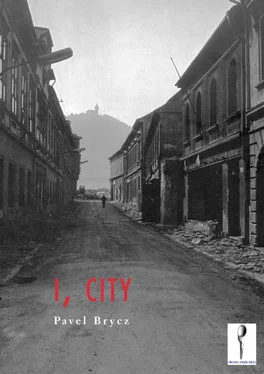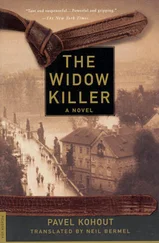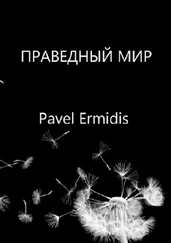Pavel Brycz - I, City
Здесь есть возможность читать онлайн «Pavel Brycz - I, City» весь текст электронной книги совершенно бесплатно (целиком полную версию без сокращений). В некоторых случаях можно слушать аудио, скачать через торрент в формате fb2 и присутствует краткое содержание. Год выпуска: 2006, Издательство: Twisted Spoon Press, Жанр: Современная проза, на английском языке. Описание произведения, (предисловие) а так же отзывы посетителей доступны на портале библиотеки ЛибКат.
- Название:I, City
- Автор:
- Издательство:Twisted Spoon Press
- Жанр:
- Год:2006
- ISBN:нет данных
- Рейтинг книги:5 / 5. Голосов: 1
-
Избранное:Добавить в избранное
- Отзывы:
-
Ваша оценка:
- 100
- 1
- 2
- 3
- 4
- 5
I, City: краткое содержание, описание и аннотация
Предлагаем к чтению аннотацию, описание, краткое содержание или предисловие (зависит от того, что написал сам автор книги «I, City»). Если вы не нашли необходимую информацию о книге — напишите в комментариях, мы постараемся отыскать её.
Dubliners
I, City
I, City — читать онлайн бесплатно полную книгу (весь текст) целиком
Ниже представлен текст книги, разбитый по страницам. Система сохранения места последней прочитанной страницы, позволяет с удобством читать онлайн бесплатно книгу «I, City», без необходимости каждый раз заново искать на чём Вы остановились. Поставьте закладку, и сможете в любой момент перейти на страницу, на которой закончили чтение.
Интервал:
Закладка:
Till took charge and offered him his arm.
He learned a few facts about the walker that amazed him. The man himself began to mention them:
“You know, young man, I’m going to the tram. I live in Litvínov, but I was here to go to the cinema. They were showing a film about the Vietnam War. Are you interested in the Vietnam War?” the man asked.
“Hm,” Till replied, “Hair, hippies, Jane Fonda, Coming Home, Coppola, Apocalypse Now, Jim Morrison… you know, I have to say that I am.”
“They got it all wrong, they did, otherwise they couldn’t have lost, could they?!” the man reasoned.
“You know, I’m very interested in war. I reported for the first one, in 1914, but they didn’t take me.”
“What?” Till was shocked. “Mister, would you tell me how old you are?”
“Ninety-nine,” the man remarked, “I was nineteen then. I had weak lungs.”
“In the Second World War, I was again just a spectator of the newsreels,” the combative man complained.
“Well, maybe they’ll give you another chance come the Fourth World War,” Till thought, “when after the Third they’ll have to replenish their manpower.”
“But they went about it all wrong,” the man continued, “those Americans in the movie, they did…”
He could barely crawl, he was ninety-nine years old, but he still wanted to go to war.
Till was enraptured by him.
An immortal man, who would like nothing better than to fall.
AN APPEARANCE, DANCING
Would you like to hear a story about dancing lessons and first love? C’mon! I know you’ve heard plenty of them! But I’ll tell you something quite different, original, not so banal… though, when I think about it, it’s unavoidable — the heart of this story is really first love.
We begin with a joke, as the dancing-master Roubíček begins the evening lessons for the youth.
“Do you know the one about the lords?” Master Roubíček screams at the sweating young men in suits, who look like guests at a Sicilian wedding, their expressions as if a vendetta as they step the basics of the jive, polka, and waltz.
“I’ll kill him, guys,” the young Werther says.
“It’s sorry, having to stomp cabbage while listening to his wisecracks.”
But Master Roubíček, as if he hasn’t heard him, knows that his jokes are meant for the young ladies. He perks up and says: one — two — three and two — two — three, he claps, showing the slow, unsure and hunched boys what a true gentleman looks like: always with the most beautiful debutante, an excellent tie, a perfect body and, because every evening before going to sleep he doesn’t pick at his pimples as do the participants in his course, he has the time to invite such beautiful debutantes home.
There is one sorrow more to be experienced by our young Werther.
He dances with the master’s assistant, Bešta. Werther is, so to speak, unpaired, surplus.
Roubíček demonstrates dances with Werther’s female partner.
Petr Bešta is God’s elect. Only two years older than Werther, but already graduated from the beginners’ lessons, he has joined the advanced ballroom dancing group. And today? Today he dances body-to-body with the most beautiful girls left to him by Roubíček.
Because he’s eighteen, he’s growing into a master himself. His suit fits like a glove, the fuzz below his nose embarrassing no one, his posture perfect.
He lives in the same building as the young Werther, at the same entrance, and because in the evening after dancing lessons he goes home with his younger friend, on the way he tries to teach him moves of the subtlest finesse.
“Look man, you can’t turn with me on one spot all the time; dance is a sophisticated motion Jirka,” Petr Bešta explains to his partner.
“You have to sweep the corners with me!”
And so Jirka Werther sweeps corners with him, but so wildly that the next lesson the desperate Bešta screams: “Slow down, you’re throwing me around like Švanda the bagpiper, and I’m just a frail girl…” But young Werther sets his teeth, because he can’t imagine Bešta being a beautiful girl, and while dancing he whispers infuriated into his partner’s ear: “I’ll always be sadistic when dancing with you until you and Roubíček give me a girl!”
And Roubíček with his absolute musical pitch hears his name and immediately starts up: “Two English lords are in the restroom, silently urinating next to one another, and when they’re about to leave one says to the other: ‘Sir, they taught us at Oxford to wash our hands after using the pissoir!’ And the other replies: ‘At Cambridge, they taught us not to piss them…’ ”
“I’ll kill him, I’ll kill that guy,” young Werther hisses over Bešta’s shoulder in a caracole, and observes how Roubíček laughs at his own joke and coos with a beautiful debutante. “This is what they call dancing lessons’ first love? I swear by all that is sacred that no one will see me here ever again, dancing with a man like some prospector out in the Klondike!”
Once again, young Werther and Bešta Petr go home together in the evening. They stop in front of the house by the garbage cans.
“Man, Bešta, I have problems with the waltz — whenever I begin one I end up in a polka…”
“I know,” Bešta smiles and goes and stands with his chest thrust forth like a pigeon, then executes the Metamorphosis of Bešta into a female partner. And so the two dancers hold each other at the garbage cans and dance On the Beautiful Blue Danube all the way inside and up the stairs.
And one — two — three, two — two — three…
“Bešta, we look like idiots, don’t we?”
“Don’t worry, no one’s looking.”
But it’s not true. I, city, am watching.
Laughing, the whole city looks on.
AN APPEARANCE, FAST
Hours and hours I’m able to observe the children’s games and to admire how children manage, totally without ostentation, with only a wing-beat of imagination, to change the world.
Take for instance a sandpit.
An ordinary sandpit. And all of a sudden, I see an automobile racetrack: Monza with its chicanes, Nürburgring with its deadly curve, Hungaroring with the long home-stretch. And at the starting-post, in the first row, Gilles Villeneuve, the incomparable, the fastest, the Flying Canadian, as the sportswriters have nicknamed him.
Death or victory, such speed is borne by his plate.
Boys from the house have marbles: red — Ferrari, blue — Ligier, yellow — canary Fittipaldi, black — Lotus, white — Williams, every marble a hero of their childhood. But Toník has the greatest red hero; he has the Flying Canadian, Gilles Villeneuve, and so it’s no wonder that Toník plays so perfectly, that he’s already won nine Grands Prix, that the whole sandpit lies at his feet. He turns past even the most difficult chicane without collision, even in the most fierce encounter with his competitors he keeps a cool head. He, Toník, death or victory.
“That’d be something if Villeneuve came to the track at Most, wouldn’t it?” says Zdeněk, Niki Lauda to his friends.
“No way, dude…” gasps Toník, aka Gilles Villeneuve.
“The guy doesn’t even know the Most track exists!” says Roman, Nelson Piquet.
“What about writing to him?” suggests Libor, Clay Regazzoni.
“And how, idiot, in Czech?” laughs Víťa, James Hunt.
“Bullshit — in Canada they speak French, English or Indian,” reasons Ríša, Alain Prost.
“And you know any of those?” asks Niki Lauda.
“Well, Indian, a couple of words. Methane-aqua, for instance,” boasts Alain Prost.
Читать дальшеИнтервал:
Закладка:
Похожие книги на «I, City»
Представляем Вашему вниманию похожие книги на «I, City» списком для выбора. Мы отобрали схожую по названию и смыслу литературу в надежде предоставить читателям больше вариантов отыскать новые, интересные, ещё непрочитанные произведения.
Обсуждение, отзывы о книге «I, City» и просто собственные мнения читателей. Оставьте ваши комментарии, напишите, что Вы думаете о произведении, его смысле или главных героях. Укажите что конкретно понравилось, а что нет, и почему Вы так считаете.












